
Make a lasting impact on every child
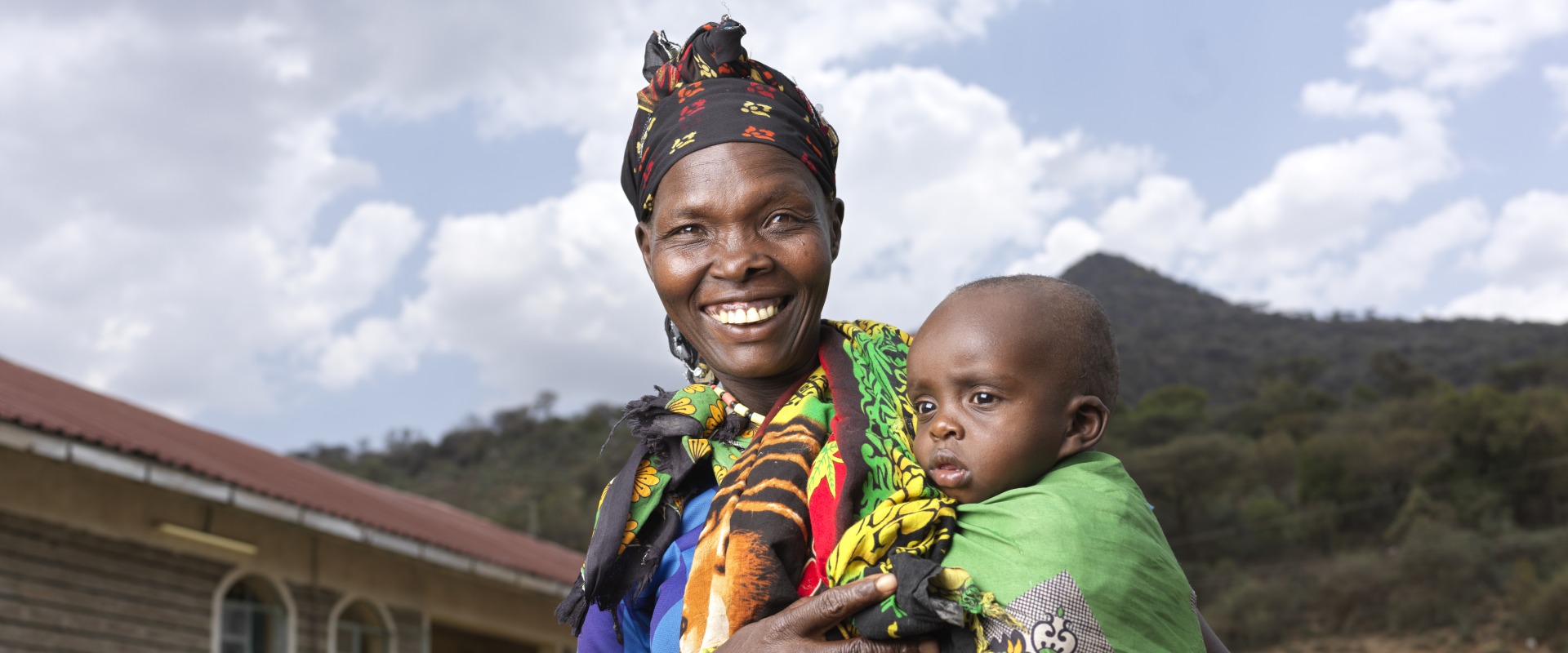
After crossing through the mountain ridges along the road in West Pokot, Kenya, Emily’s home is finally in sight. Emily and her family live at the top of a steep hill in an area several hours away from any town. In the foothills two hours away, there is a health center supported by Action Against Hunger where Emily brought her nine-month-old baby, Hebron, when he fell severely ill.
“My baby was in a very bad situation. If I hadn’t brought Hebron to the health center, he could have even died,” says Emily while holding sleepy Hebron on a hot day at the health center.
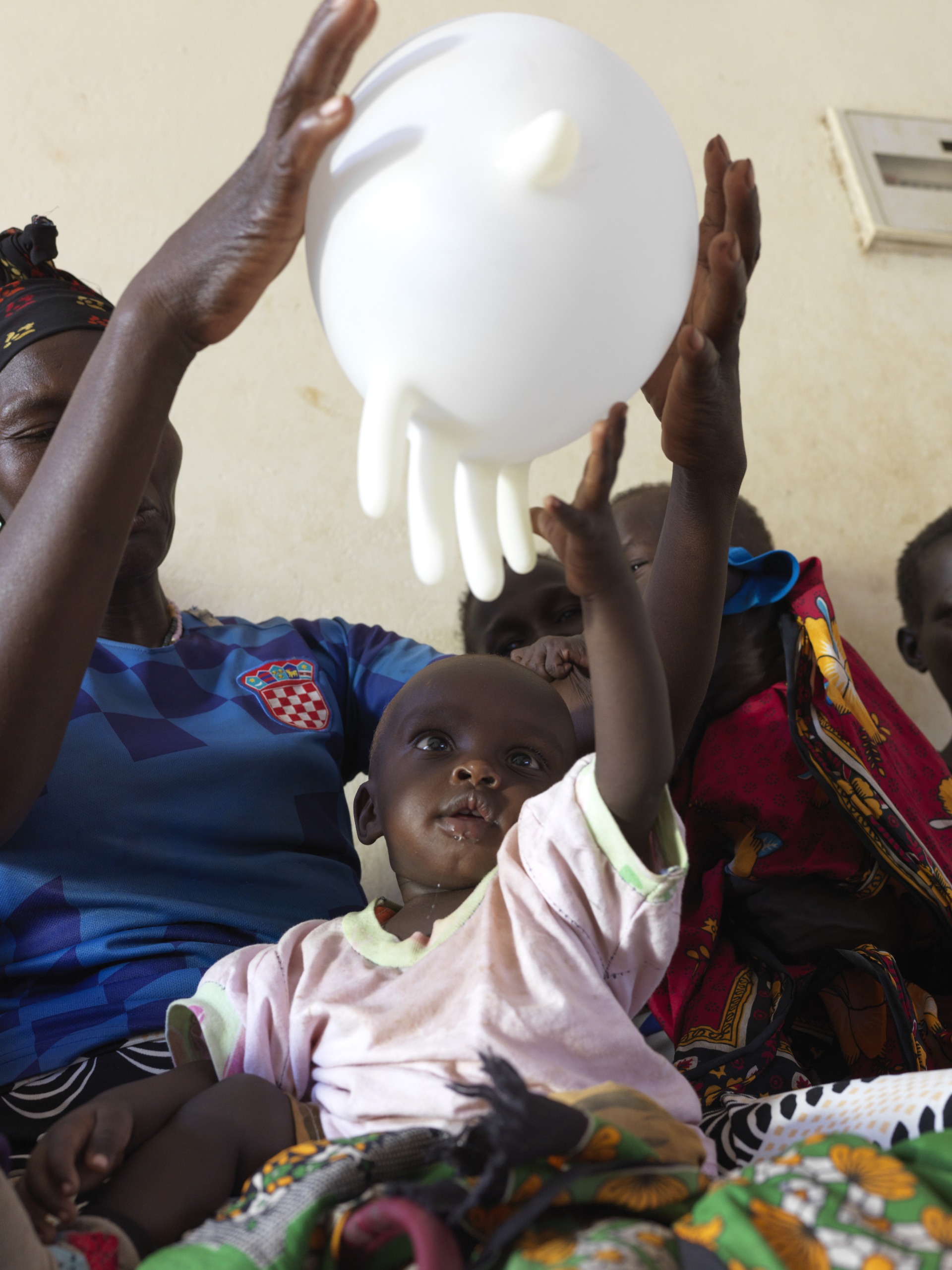
Many mothers sit beside her, holding their inquisitive babies. The thinner children are clearly new arrivals, awaiting or just starting treatment, but others, like Hebron, are well into the program, as evidenced by their playful spirits, bright eyes, and chubbier arms.
“When I started introducing other foods to the baby, that’s when the problem began…I didn’t have enough food and I didn’t have enough milk,” Emily recalls. “All the time, my baby had the flu. All the time, he had illnesses. Because there wasn’t enough food in my house, my baby started to become weak and thin, which worried me.”
The World Health Organization recommends that mothers exclusively breastfeed babies until they are six months old. After this time, many children have their first tastes of solid food and other sources of nutrition, such as milk from cows or goats. For families struggling to find income, clean water, or adequate food, it may be a struggle to keep their children healthy and well-nourished.
In West Pokot, severe drought is making food and water extremely scarce. As Hebron grew older and transitioned to solid foods, Emily and her husband did not have enough to feed him and the rest of their children.
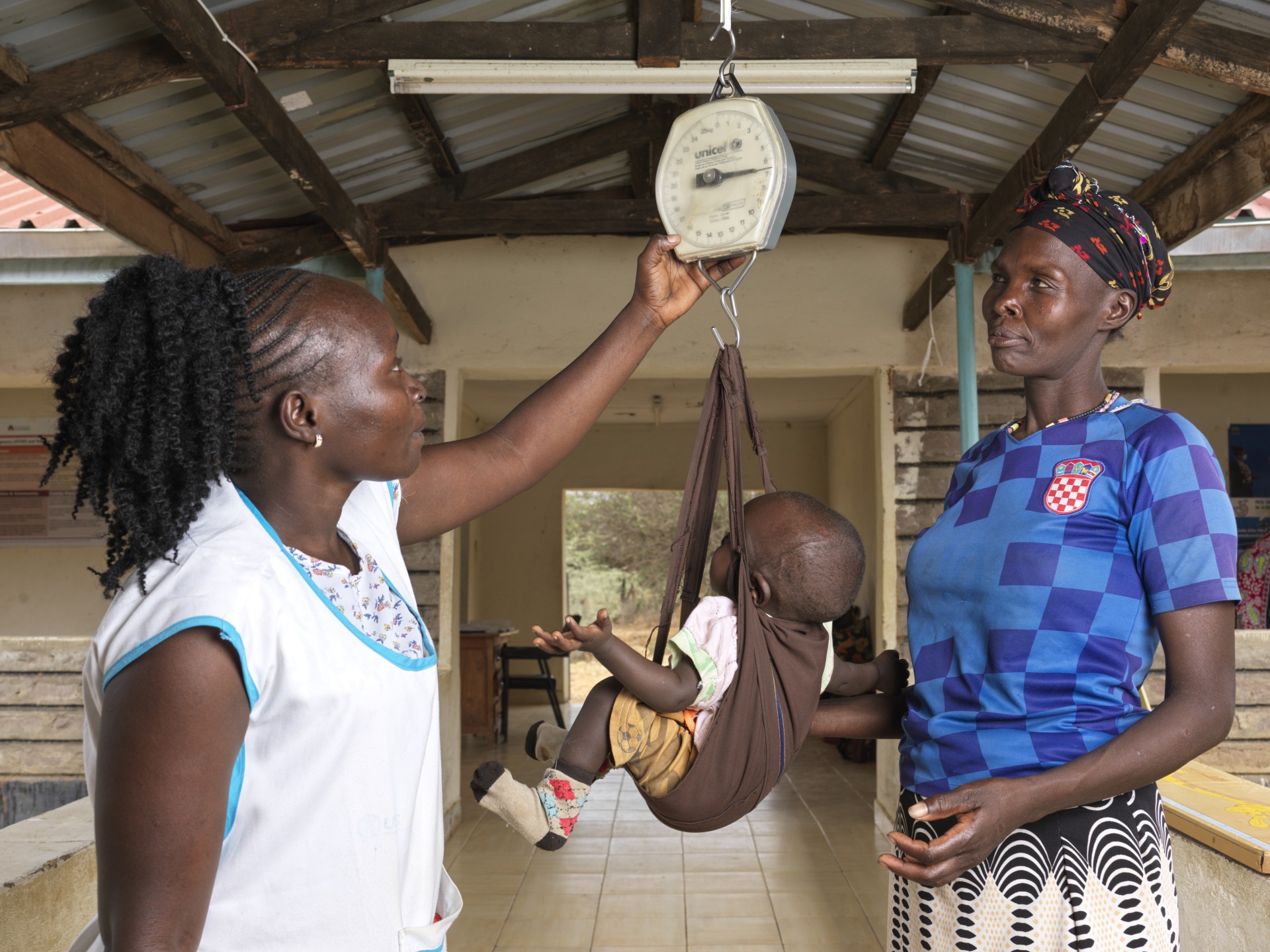
“The land is there, but the problem is the drought. Sometimes we cultivate, but because of the lack of rain, the crops dry up and we end up without any food,” explains Emily. “We had some cows, but we sold most of them to pay for school fees and the last cow we had died due to the drought.”
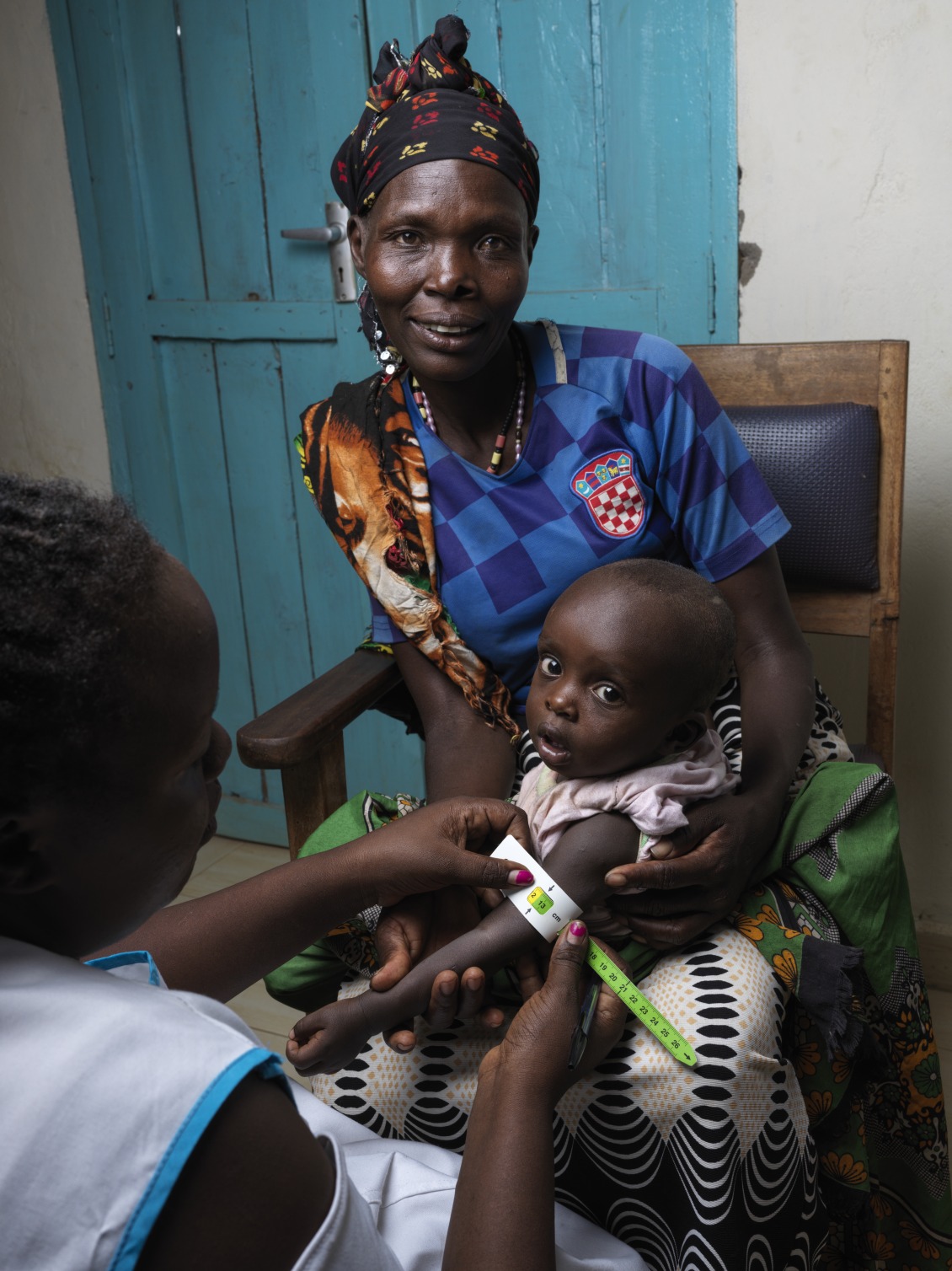
Hebron did not have enough to eat, but he also suffered from other illnesses and had trouble retaining the nutrients from what little food he did eat. When children are sick, they don’t have the strength to heal – and the reverse is true, too: when children are weak from malnutrition, they are more susceptible to illnesses. In fact, studies show that malnourished children are 11 times more likely to die from common childhood illnesses than healthy children.
“Hebron was admitted and given intravenous fluids,” says Emily. “He was diagnosed with malaria and typhoid when I came to the health center. The main reason, I was told, was lack of food, especially milk – we don’t have milk.”
After Hebron had recovered his strength and was discharged to return home, Emily made sure he had regular check-ups and sufficient supply of Plumpy’Nut, the peanut paste used to treat malnutrition. With her baby on her back, she regularly walks two hours in the harsh climate down the rocky mountain by her home to get Hebron what he needed to regain his full health.
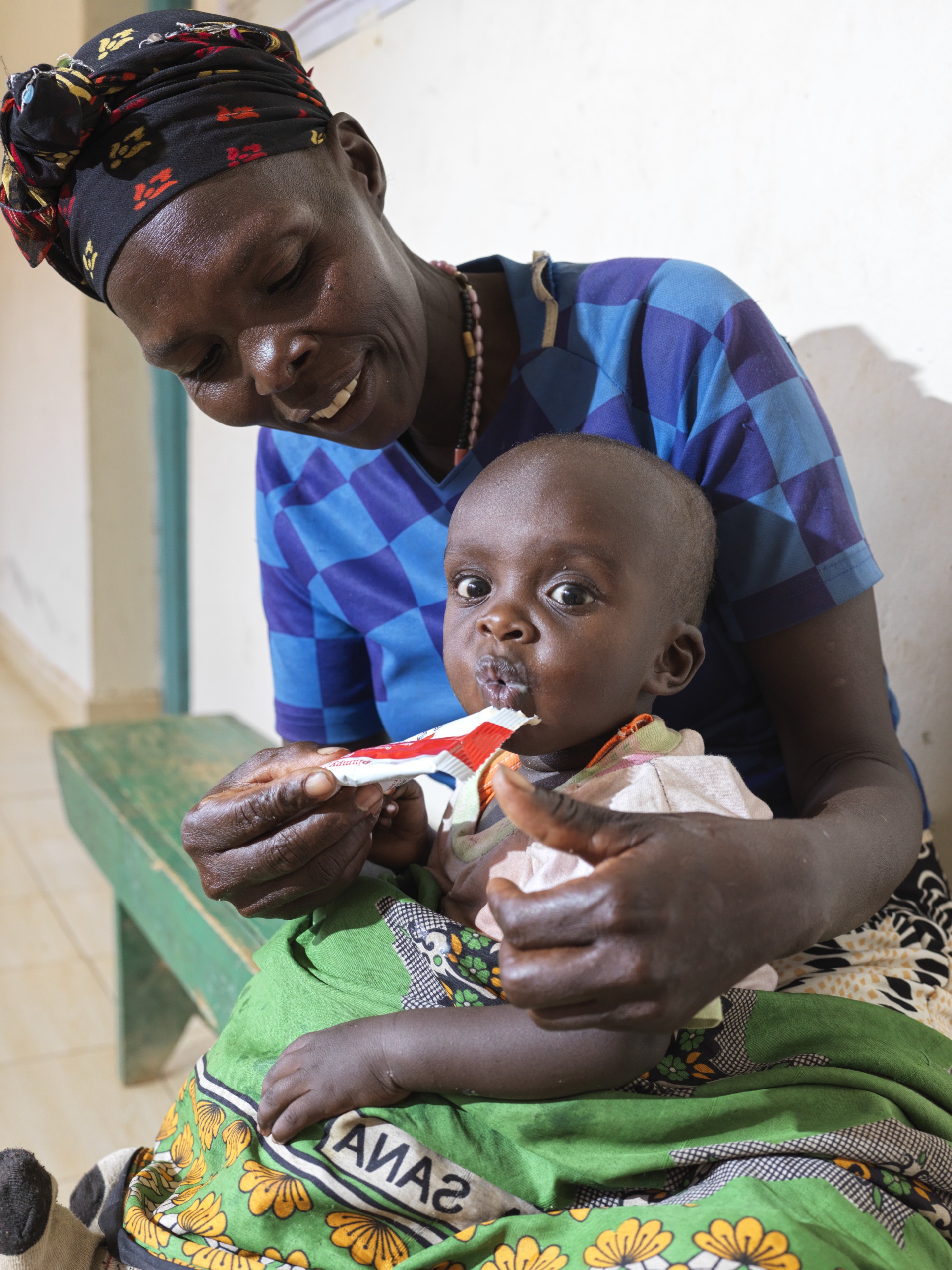
“I am happy with myself because I took the bold initiative to bring my baby to the health center. If I wouldn’t have done that, Hebron would not be here now,” says Emily as Hebron slowly wakes up. “Some women sometimes give up. In fact, today I haven’t seen some of the women I normally see here. Some women don’t come as often as required…Even if it’s far, you must bring your child.”
Hebron looks healthier and plays much more than in the past, says his mother. With his health on the right track, Emily can focus again on her dreams for her child.
“I feel very happy about being a mother, especially when I see my children growing, because children are good,” says Emily. “When Hebron grows a bit older, I want to enroll him in school. I want to educate him until he reaches university, so that he can get a good job and come back and help us.”
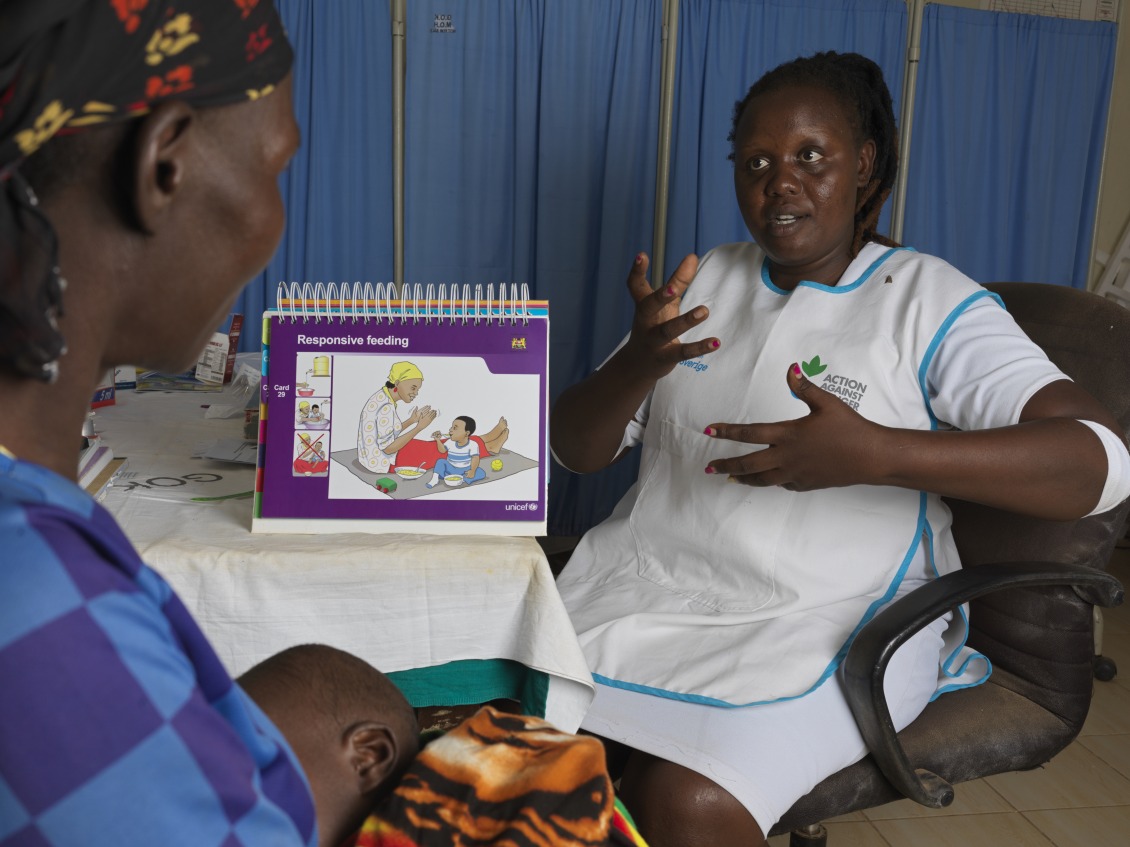
Join our community of supporters passionate about ending world hunger.